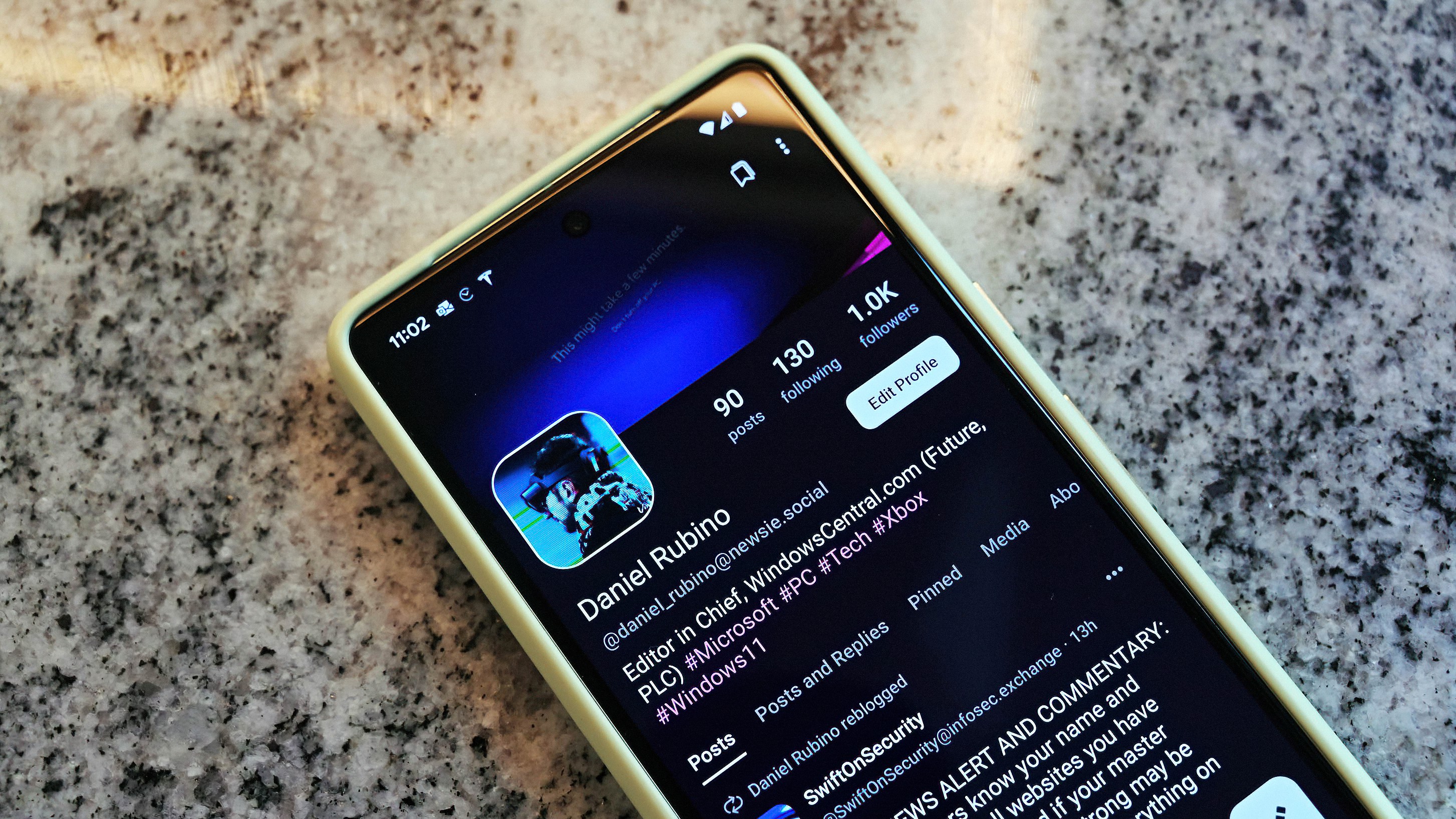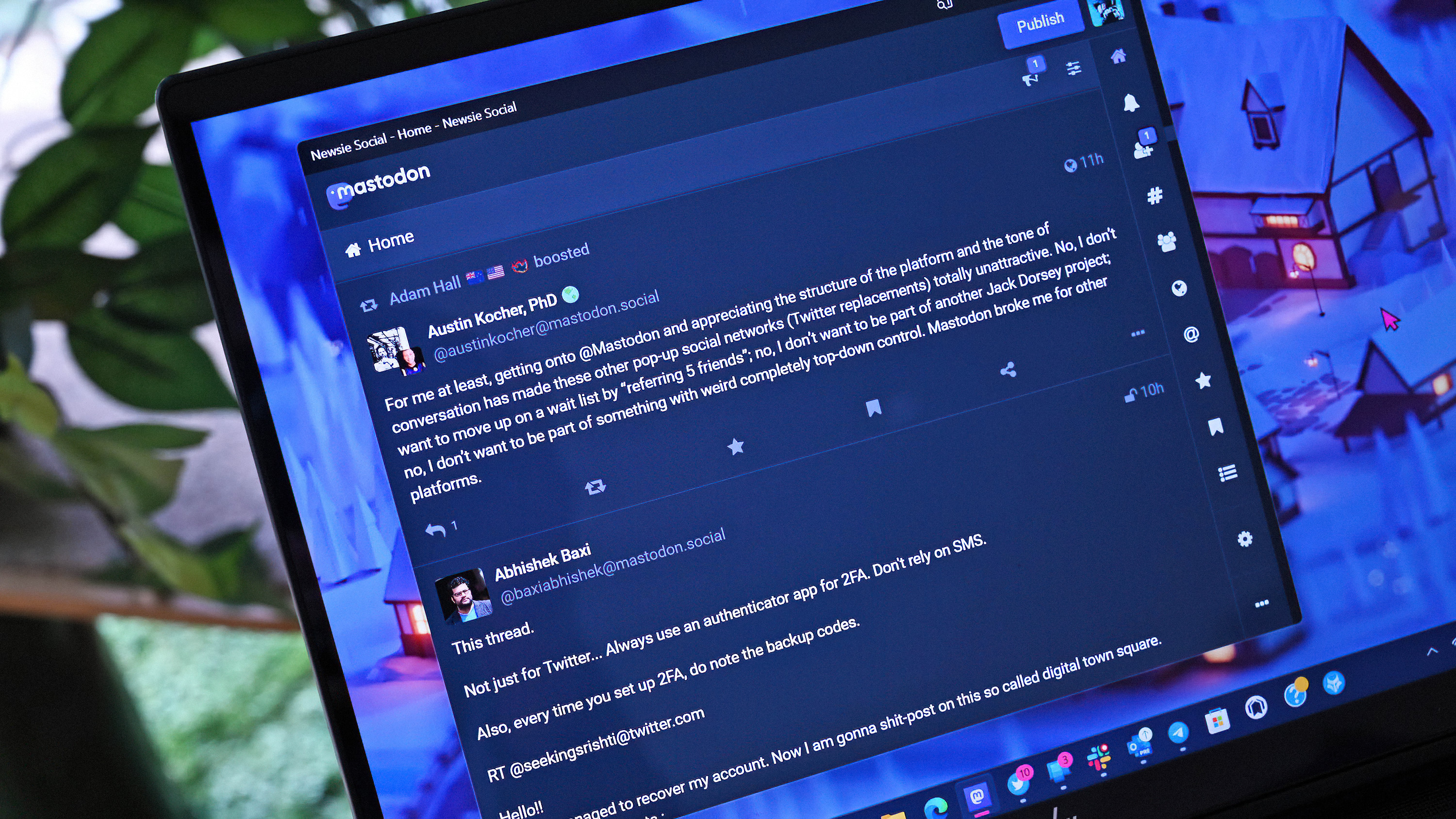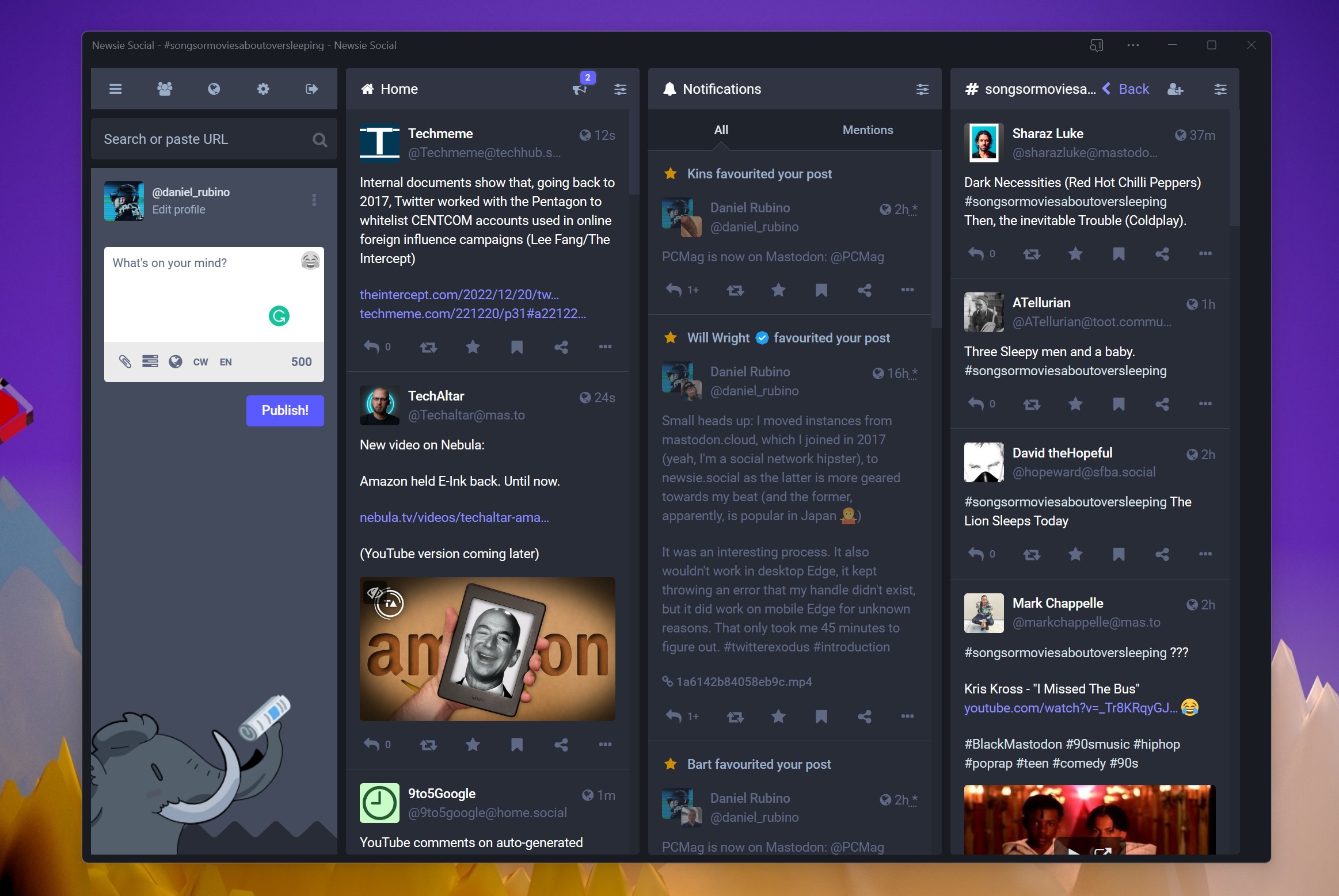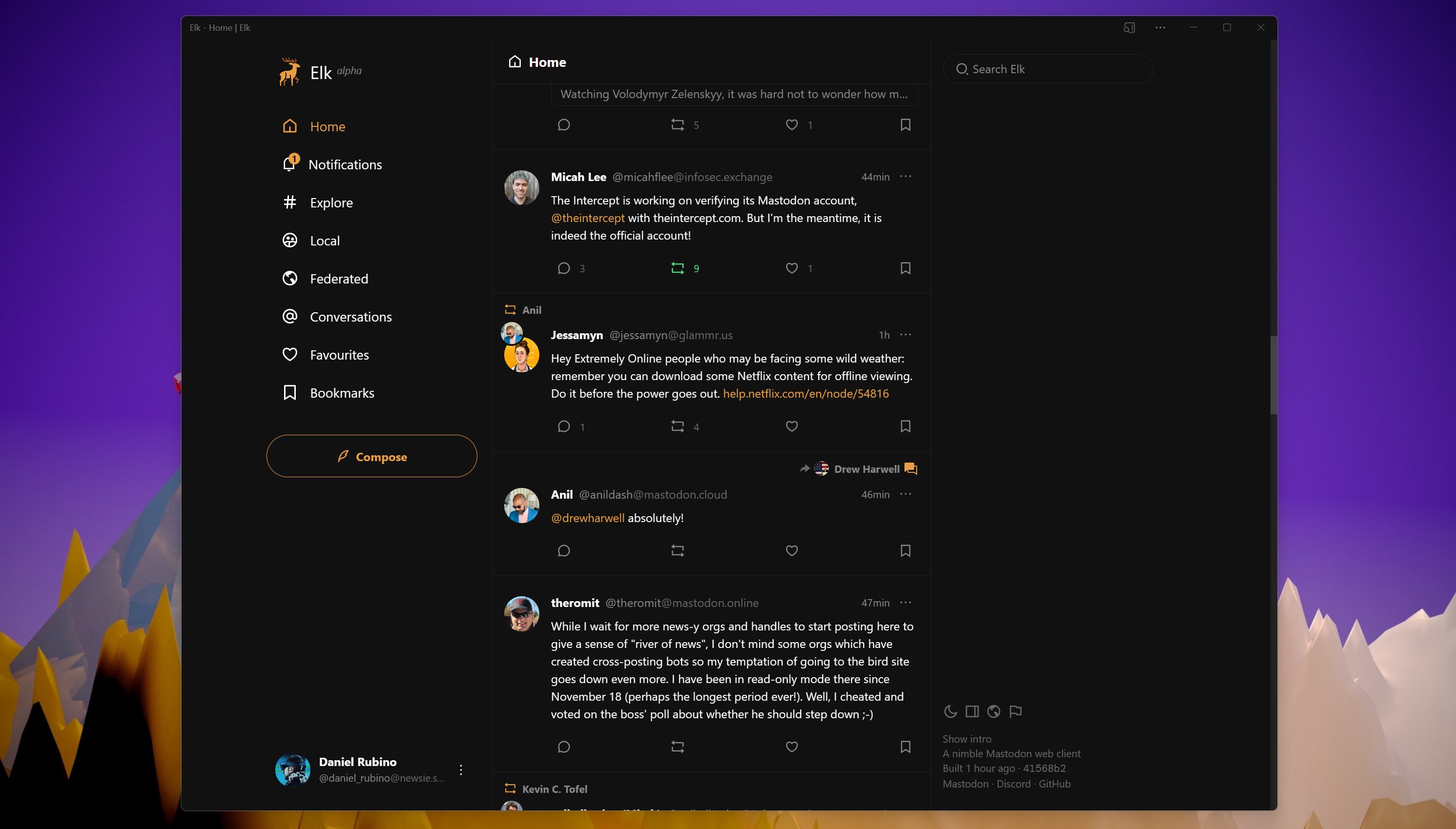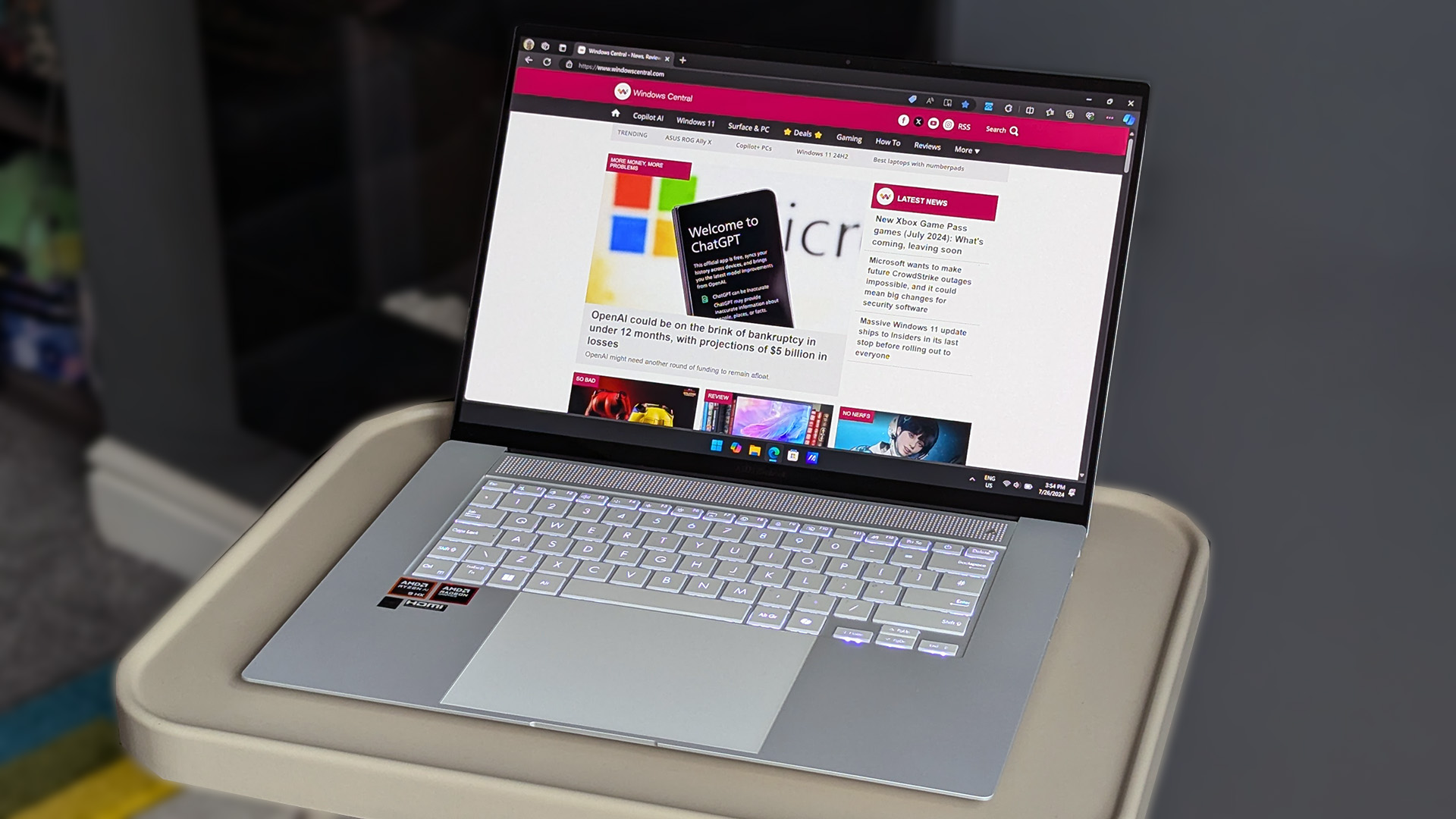Mastodon reminds me of the early days of the internet. Here’s why that’s a good thing.
A decentralized social network has its challenges, but Mastodon is the first exciting thing to happen to the internet in years.
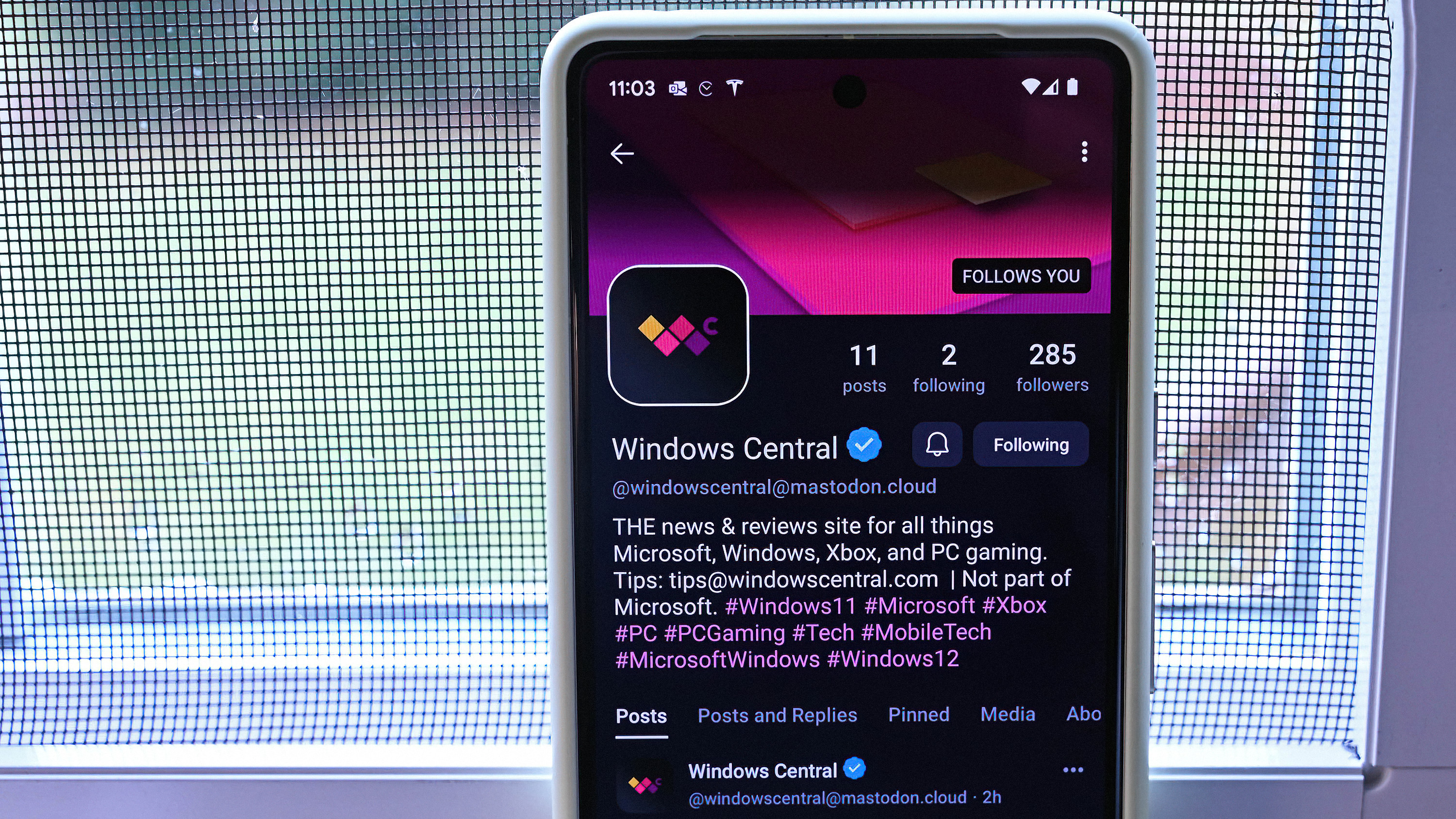
All the latest news, reviews, and guides for Windows and Xbox diehards.
You are now subscribed
Your newsletter sign-up was successful
Back in 2017, I joined mastodon.cloud, one of the first “instances” (aka servers) for Mastodon. The concept seemed convoluted: A decentralized social network (whatever that means), although it was just another thing to sign up for at the time. So, like many tech geeks, I parked a username just in case Mastodon ever took off, which seemed quite unlikely.
Fast forward to 2022, and I don’t need to rehash the drama of Twitter after Elon Musk has taken over. I’m not much into fake controversy and daily outrage. I mostly laughed at the madness of seemingly random and contradictory new policies like banning the sharing of other social networks, only to be reversed less than 24 hours later (but not before banning some users, of course). There’s also the seemingly retaliatory suspension of journalists to settle petty personal scores or whatever Twitter Blue is these days.
And when Twitter became hilariously mismanaged, it became less valuable and fun, at least for me. Many of the personal accounts I followed started posting less (or not at all). My timeline became automated brand postings – one endless news RSS feed. Those who were tweeting were talking about Elon Musk – a topic I’m so burnt out on, like many others. And the few times I tweeted, the interactions and sharing reflected what felt like a mass rejection of whatever Twitter was morphing into with less interaction.
I’ve always noted that you need two significant events for a paradigm shift. For one, the existing paradigm, in this case, Twitter, must undergo a crisis. Number two, you need a viable alternative that does something better than the previous system. This shift has happened with Myspace vs. Facebook, Netscape vs. Internet Explorer, FTP/Gopher/Newsgroups vs. WWW, IRC vs. SMS/messaging apps, etc.
Twitter is in crisis. Even Musk knows this, recently remarking that Twitter is like “a plane that’s headed towards the ground at high speed, with the engines on fire, and the controls don’t work.” Advertisers feel the same, with the Wall Street Journal noting that 70%+ of Twitter’s top 100 ad spenders weren’t spending on the platform due to a lack of faith and concerns over management.
With 89% of Twitter’s revenue coming from ads, that’s a severe problem.
Is Mastodon for everyone? Will it be the town square of the world? No, and no, and I don’t care.
And while many of Musk’s weirdo hardcore fans lament “the legacy blue checks” on the platform, most people go to Twitter to hear what those verified “celebrities” are saying. That was the beauty of Twitter: You could tweet at your favorite celebrity or dunk on a politician. Unfortunately, without the “elites,” Twitter loses its appeal, which seems to be happening.
All the latest news, reviews, and guides for Windows and Xbox diehards.
And here is where Mastodon, 5 years later, comes back into the picture. It wasn’t long before many people quitting Twitter migrated to Mastodon. Was this a temporary hissy fit by the internet or a genuine movement?
Mastodon: Far from perfect, but also fun
Mastodon is not a direct replacement for Twitter, but it may offer something better: A return to the golden days of the internet where no one owned the thing.
But Mastodon also has some severe onboarding issues. The system is confusing, such as which server you should sign up for, how there is no retweet ability, and the discovery of new topics, especially people, is a challenge (which is why I made a list of tech people and sites to follow).
The Android apps and PWA are great, but even logging in can be confusing for the first time.
Is that elitist? Yeah, and that’s what I like about it.
There is also the worry that Mastodon will become another echo chamber. That’s somewhat true. Right now, it’s journalists, scientists, some artists, creators, and your cutting-edge tech nerds. Trying to get your normie friends on Mastodon is like teaching grandpa how to use a smartphone – it won’t be easy!
And that’s what I like about it.
Is that elitist? Yes, to a certain extent. But I remember in 1994 when I was using the “information superhighway,” as some were calling it to FTP to servers, use Newsgroups to discuss topics, chat on IRC, use electronic mail to talk to people remotely, or Gopher to find things. We formed small, close groups, even if you were on the “mainstream” America Online (or Prodigy before it).
These small networks drove the internet until the World Wide Web and browsers emerged. And those birthed message boards and blogging, which has morphed into publishing and comments.
All of that was elitist back in the 1990s.
Most people didn’t own a PC or even one with a modem. So getting onto the internet was not trivial (AOL did help). And explaining the internet to people was problematic because there were so many new terms and metaphors. If you were on the ‘net in 1995, you were part of a particular club of people in the know.
Mastodon, and the larger Fediverse, is the first real alternative to the last 20 years of the standard internet I’ve come across. Being decentralized, no one controls or owns it, as anyone can set up a Mastodon instance.
Mastodon feels like the internet in the 1990s, and I love it.
No algorithms or monolith corporations are mining your data. There are no ads. There is no weird, lonely guy in charge changing the rules arbitrarily or running dumb polls to set policy.
Right now, Mastodon is just people talking and not arguing. They are not dunking on each other for internet fame. There are no daily villains or endless faux outrage over the most trivial things. Bots, at least the wrong kind, are not a problem. No one is creating fake accounts or trying to impersonate someone else.
Yeah, it’s like the internet in the 1990s, and I love it.
Is it for everyone? Will it be the town square of the world? No, and no, and I don’t care.
I’m not sure if it will last or if Mastodon will morph into Twitter 3.0 with all the baggage that comes with popular, centralized, corporatized social networks. However, the structure of the networks suggests it won’t.
Regardless, I’m enjoying the change of scenery and, more significantly, the potential for us all to create something new and better. I hope it grows, and I’m OK if Musk’s Twitter crashes and burns. Good riddance! Something better can come from those ashes — schöpferische Zerstörung ("creative destruction"). That’s how the market works.
I say, embrace the chaos and join the fun, even if it doesn't last.
Looking to get started on Mastodon? Here's a list of tech people and sites to follow to get your feed started.

Daniel Rubino is the Editor-in-Chief of Windows Central. He is also the head reviewer, podcast co-host, and lead analyst. He has been covering Microsoft since 2007, when this site was called WMExperts (and later Windows Phone Central). His interests include Windows, laptops, next-gen computing, and wearable tech. He has reviewed laptops for over 10 years and is particularly fond of Qualcomm processors, new form factors, and thin-and-light PCs. Before all this tech stuff, he worked on a Ph.D. in linguistics studying brain and syntax, performed polysomnographs in NYC, and was a motion-picture operator for 17 years.
